Hunger without borders: aid cuts hit displaced people in CAR and Cameroon
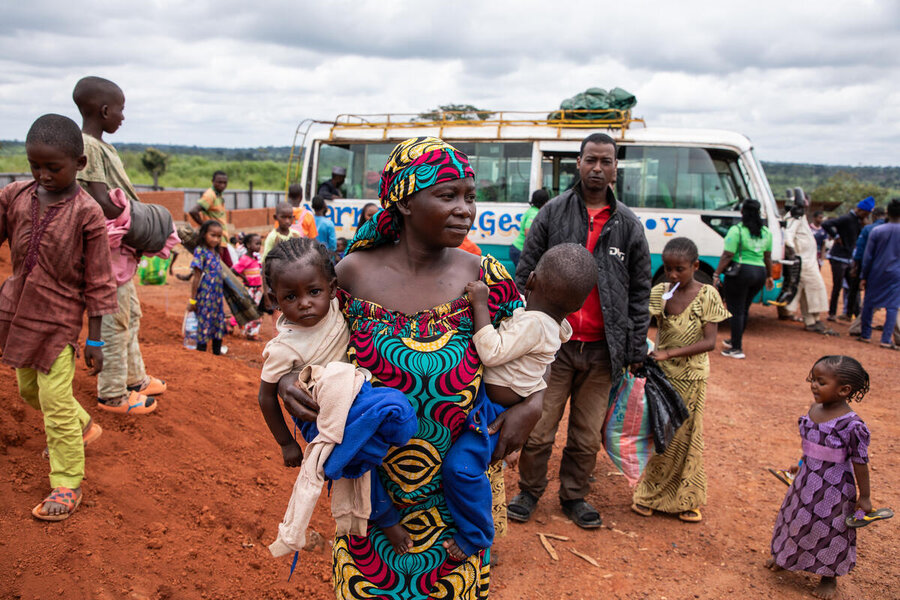
A convoy of minibuses rumbles into the far western Central African village of Beloko, kicking up a cloud of dust. Carrying her 15-month-old twins, Nafissa is among the first to get off with her husband and 10-year-old daughter right behind them.
After waiting hours to complete transfer formalities at the Cameroonian border a few metres away, they and the other Central Africans aboard are eager to breathe fresh air and stretch their legs. They are back in their homeland after more than a decade in exile.
“I want to reunite with my family and live in harmony and peace,” says Nafissa, who fled unrest in her native village of Nidi Ba, around 60 km away. (As a former refugee, her last name is not being used).
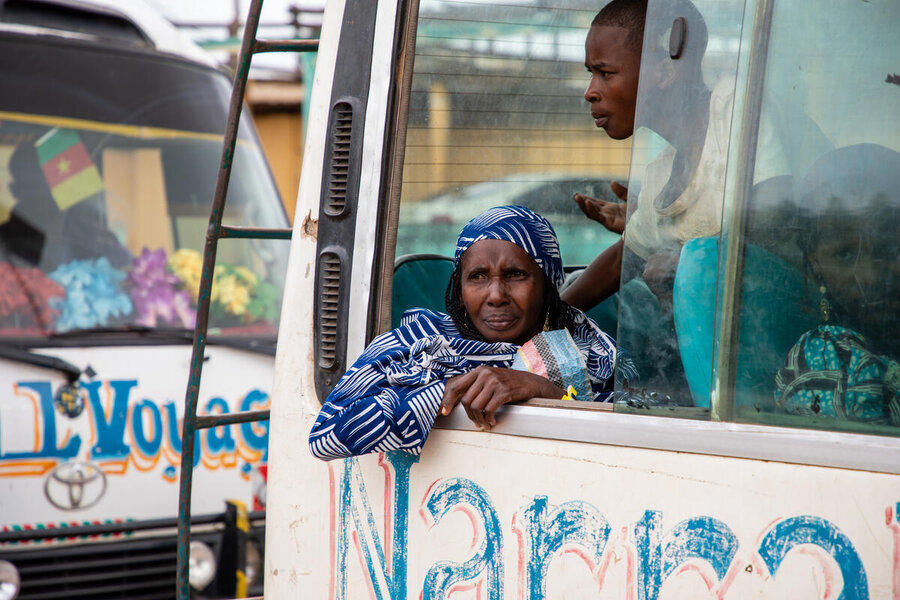
Of the nearly 300,000 Central African refugees currently in Cameroon, an increasing number are packing up their bags and heading home, as humanitarian support in their host country becomes increasingly scarce and a fragile stability emerges in the Central African Republic (CAR).
With their Government’s encouragement to resettle, an estimated 40,000 Central African refugees like Nafissa are expected to return to CAR this year alone, according to the UN Refugee Agency (UNHCR) - a sharp uptick from the 30,000 returnees recorded over the previous five years combined. Most are coming from Cameroon, which hosts the largest number of Central African refugees in the region.
After being registered at a transit camp in Beloko - one of two main entry points from Cameroon into CAR - Nafissa and her family receive their first food assistance from the World Food Programme (WFP): cereals, pulses, oil and salt. This initial support is crucial for families who are starting over from scratch - and returning to impoverished communities that have been deeply affected by years-long violence.
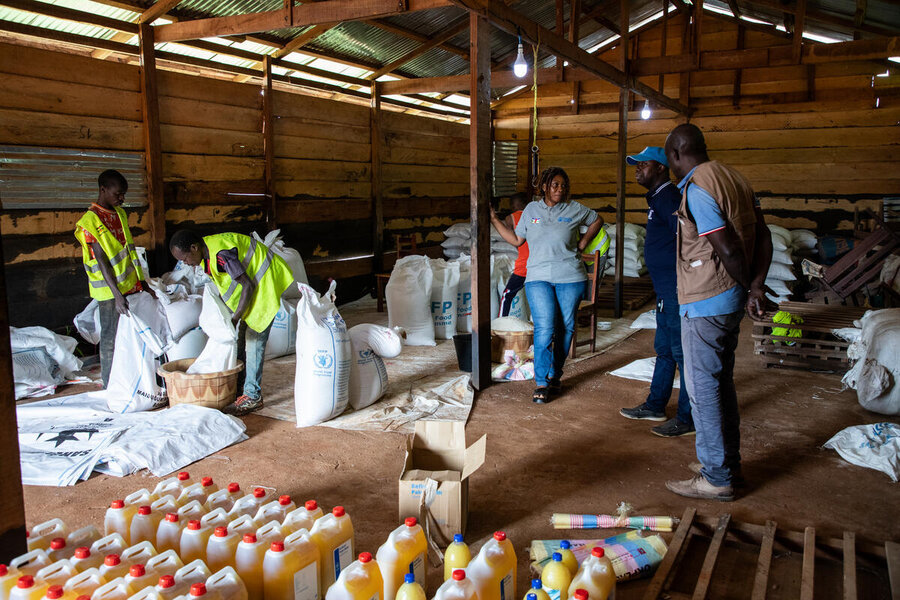
But that assistance is at risk, as humanitarian funding dries up. In the past, WFP provided three-months' worth of food rations to each returnee. Now only a single month’s supply is being distributed. Without new donations, WFP will be forced to suspend all returnee assistance by the year’s end.
“The return of Central Africans is a sign that stability is within reach,” says WFP CAR Country Director Rasmus Egendal. “But unless we help them re-establish their lives, we risk turning this moment of opportunity into a new crisis. Returnees need immediate support to stand on their feet and contribute to the future of their country.”
‘Hunger consumes us’
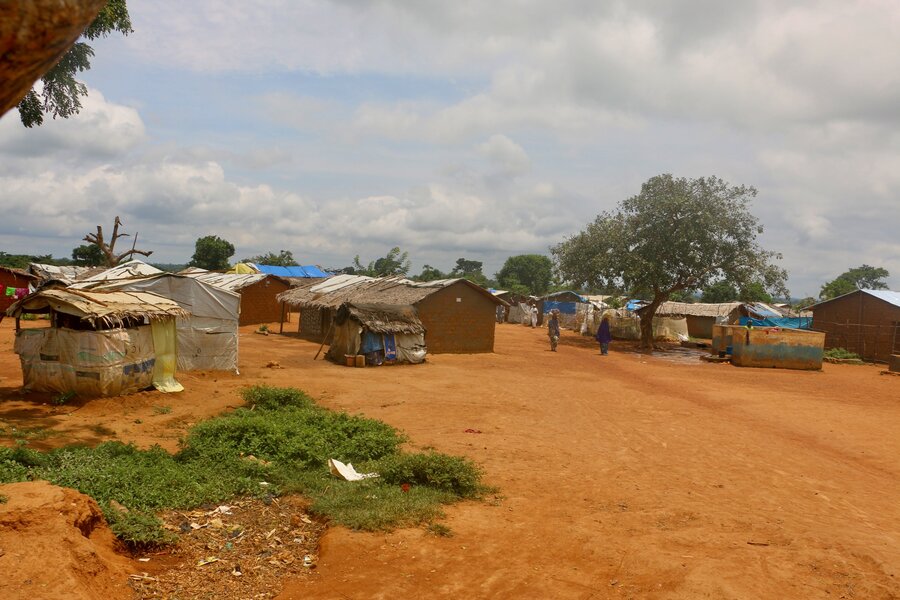
Across the border in Cameroon, WFP’s operations are also taking a hit. While recent donations will allow WFP to continue supporting 20,000 Central African exiles for the coming months, those numbers are only a fraction of the country’s overall refugee population, which also includes asylum seekers from Nigeria, Chad and Niger. The longer-term funding outlook for WFP’s refugee response is uncertain.
“No parent should ever be forced to choose between remaining in exile or returning home, simply because their children are going hungry,” says Gianluca Ferrera, WFP Country Director in Cameroon. “Yet this is the stark reality for thousands of Central African refugees in Cameroon.”
For most of the 110,000 Central Africans living in Cameroon’s East Region bordering CAR, WFP’s resources are almost completely exhausted. For the moment, they cover only the needs of the most vulnerable families until the end of the year. “Without urgent contributions,” Ferrera says, “families will be condemned to the same impossible choice: hunger in exile or hunger back home.”
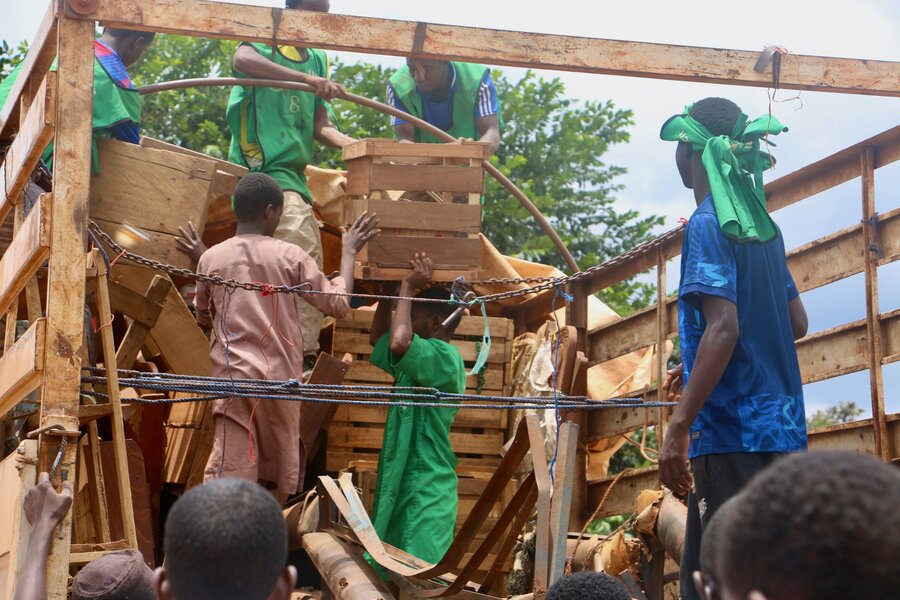
That’s the choice Halimatou faces, a decade after arriving in Cameroon. Once a successful store owner in southeastern CAR, she and her family fled their homeland in 2014, amid spreading conflict. Today, she and her family live in eastern Cameroon’s Gado-Badzéré refugee camp, a collection of makeshift wood-and-thatched dwellings, 30 km from the border.
When WFP’s food assistance ended, Halimatou turned to small farming and occasional labour to make ends meet. But it hasn’t been enough to feed her family and her health is poor. So, like Nafissa, Halimatou is also returning home.
“I am going back because I am tired of struggling, and of not knowing how to feed my children,” Halimatou says. “My little ones are slowly fading from hunger.”
Going home
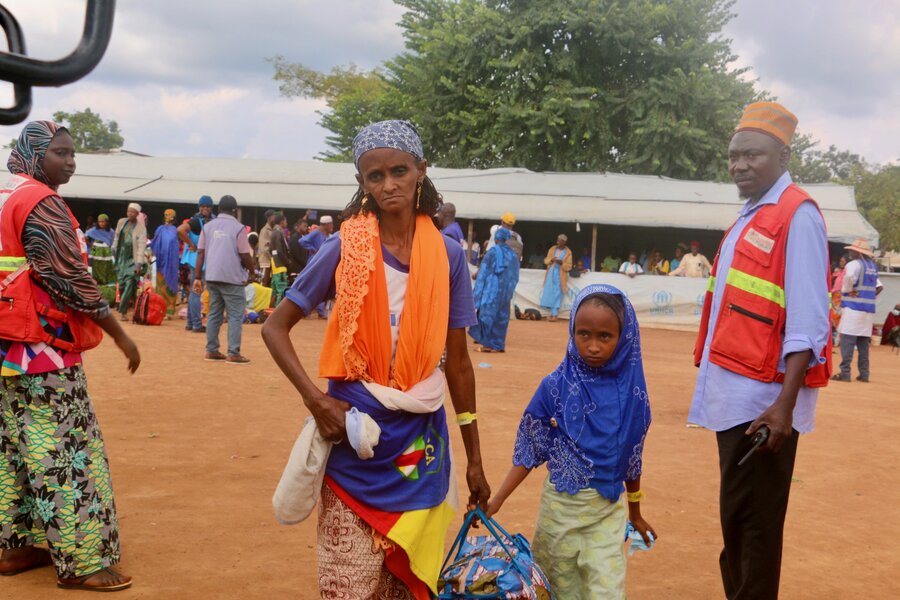
Fellow camp refugee Mariamou and her six children are preparing for the same journey. They, too, no longer receive WFP support.
“Here, hunger consumes us. Days pass without us cooking anything,” Mariamou says. “Even though the future in CAR is uncertain, we prefer to return.”
Such stories are not isolated. Across Gado-Badzéré and other camps in Cameroon’s East Region, voluntary returns are accelerating - not because conditions in CAR are always ideal, WFP and other humanitarian experts say, but because hunger is leaving families with no alternative. A number of them soon return to Cameroon after finding repatriation too difficult or risky.
Cameroon’s Governor of the East Region, Gregoire Mvongo, notes his country cannot shoulder the refugee burden alone. “We encourage those who wish to return to do so safely,” Mvongo adds.
Like the other returnees, Nafissa and her family are no strangers to hardship. As refugees, they also settled at the Gado-Badzéré refugee camp, where their three children were born.
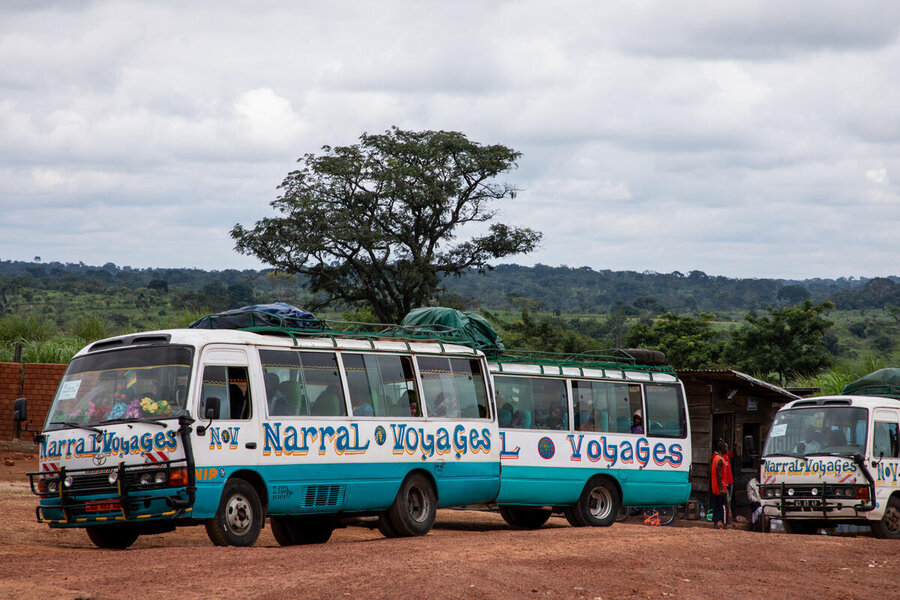
Nafissa’s husband worked as a motorcycle taxi driver there, but her own employment opportunities were limited. “In Cameroon, WFP assisted me when I first arrived,” Nafissa recalls. “After all the violence we endured (in CAR), it was the only food aid we received.”
In CAR, the WFP assistance is part of a broader effort with our humanitarian partners to ensure a dignified reintegration. Working with local authorities, WFP provides food and other assistance to help repatriated families meet their immediate needs.
For now, Nafissa’s greatest hope is to reconnect with her roots and reunite with her extended family. “I’m very happy to return to the Central African Republic,” she says.
WFP needs nearly US$6 million to provide full food assistance to returnees in the Central African Republic through March 2026. In Cameroon, WFP needs more than US$10 million to support Central African and other refugees in the country through April 2026.
WFP’s refugee and returnee operations in Cameroon and the Central African Republic, respectively, are supported by Canada, France, Japan, the Netherlands, Sweden, the United Kingdom and the United States.
